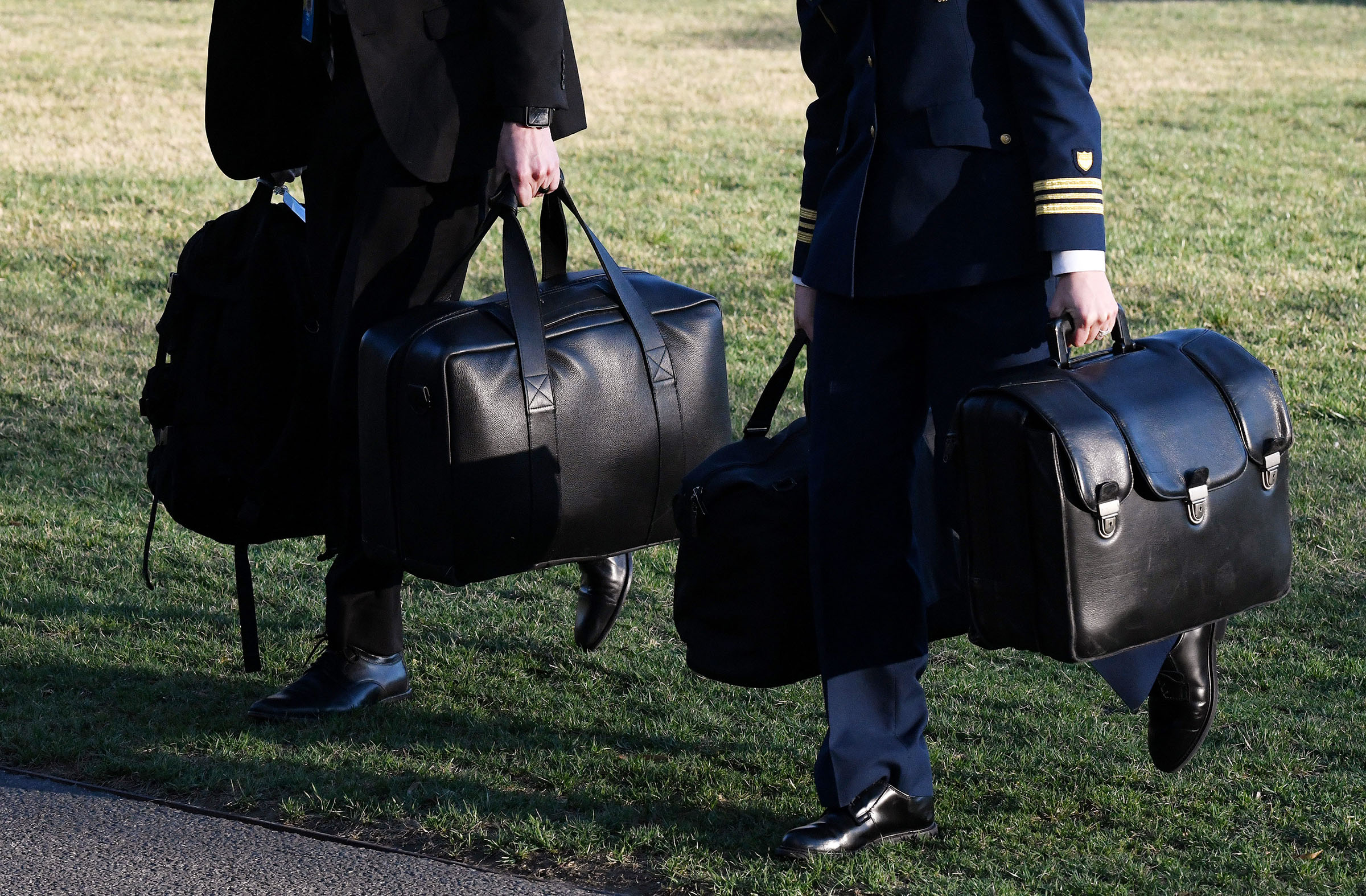
Two days after President Donald Trump roused supporters to raid the U.S. Capitol, House Speaker Nancy Pelosi asked the Pentagon’s highest military officer about the processes involved in ordering a nuclear strike.
Pelosi wrote a letter Friday to fellow lawmakers informing them that she spoke with General Mark A. Milley, the chairman of the Joint Chiefs of Staff, about keeping “an unstable President from initiating military hostilities or accessing the launch codes and ordering a nuclear strike.”
The phone call, which was confirmed by Milley’s office, comes as Pelosi moves to impeach Trump for a second time. “The situation of this unhinged President could not be more dangerous, and we must do everything that we can to protect the American people from his unbalanced assault on our country and our democracy,” she wrote.
The truth is, however, there is nothing to be done: the U.S. President has sole launch authority over the country’s nuclear arsenal. The power has remained with the White House since President Harry Truman ordered dropping atomic bombs over Hiroshima and Nagasaki during World War II.
Indeed, there is a military aide who shadows the Commander in Chief day and night, carrying the black briefcase commonly referred to as the “nuclear football,” packed with attack options and other information needed in a national emergency. At any moment’s notice, Trump is legally empowered to order a nuclear attack with America’s arsenal of strategic bombers, missile-launching submarines and land-based intercontinental ballistic missiles.
The decision to launch a nuclear attack is made by the President and relayed as an order to the Chairman of the Joint Chiefs of Staff, before it sent down the chain of command, according to military documents. The quick-reaction system was designed during the Cold War to put the country’s nuclear forces on hair-trigger alert, given that a Soviet Union attack could obliterate the nation’s defenses—and leadership—in 30 minutes or less. An American pre-emptive nuclear attack on another nuclear power would almost certainly result in the deaths of millions in the strike and counterattack.
The issue is particularly concerning as Congressional members wonder about Trump’s temperament and whether the nation can survive his remaining 12 days in office without further damage to national security. Five people were killed in the wake of the takeover of the Capitol by pro-Trump protesters, including Ashli Babbitt, a 35-year old protestor from San Diego, and Brian Sicknick, a 42-year-old U.S. Capitol Police officer from New Jersey.
Even before Wednesday’s insurrection, many in Congress believed there should be a mechanism for the President to get lawmakers’ approval before launching. In 2017, the Democrats drafted a bill that calls for the President to obtain a declaration of war from Congress before he or she can first launch a nuclear strike. It did not have bipartisan support, however, and did not pass.
Congressional hearings were held on the issue in November 2017. It was the first time a hearing on the topic had taken place since 1976, which came after it became known that President Richard Nixon was frequently drunk and depressed in the waning days of his administration.
C. Robert Kehler, the retired Air Force general who commanded U.S. Strategic Command, which oversees the nation’s nuclear arsenal, told the committee in 2017 there are military checks in place should a President order a nuclear strike if the U.S. is not first under attack. “If there is an illegal order presented to the military, the military is obligated to refuse to follow it,” he said.
Pressed by lawmakers on what would happen if a military commander felt uncomfortable about moving forward with the launch and thought it may be illegal, Kehler grew uneasy. “Well, I don’t know exactly,” Kehler said, chuckling. “Fortunately we’ve never—these are all hypothetical scenarios.”
More Must-Reads from TIME
- Cybersecurity Experts Are Sounding the Alarm on DOGE
- Meet the 2025 Women of the Year
- The Harsh Truth About Disability Inclusion
- Why Do More Young Adults Have Cancer?
- Colman Domingo Leads With Radical Love
- How to Get Better at Doing Things Alone
- Michelle Zauner Stares Down the Darkness
Write to W.J. Hennigan at william.hennigan@time.com